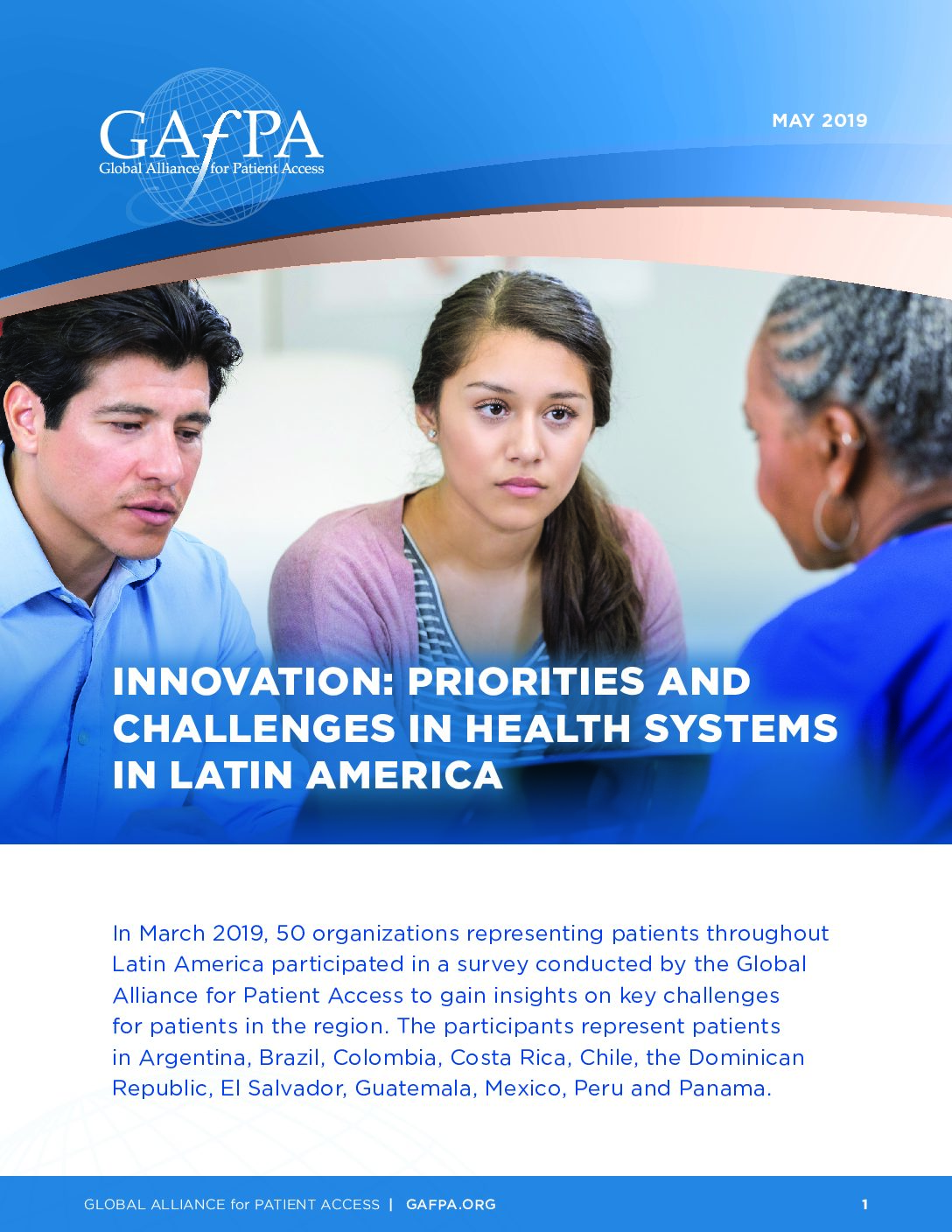
“Innovation: Priorities and Challenges in Health Systems in Latin America,” captured opinions of 50 patient advocacy organization representatives from 11 central and south American countries.
Health Care Challenges
Nearly half of respondents, a plurality, identified access as the biggest health care challenge facing their country. Respondents identified fragmentation of the health care system and the low level of investment in health as the other top challenges.
Access challenges broadly impact multiple facets of the health care system. As one respondent noted, limited access “to hospital facilities, to specialist doctors and to on time treatments” harms patients’ health.
The “lack of social commitment on the part of health authorities” hinders patients’ quality of life, shared another respondent. But these challenges present opportunities for improvement through innovation and protection of intellectual property.
Innovation and Intellectual Property
Nearly 90 percent of respondents indicated innovation is relevant and seven in ten respondents affirmed medical innovation has an impact on patient access.
When asked how the government could benefit patients, one respondent offered that “the entry of medicines [should] be regulated and controlled.” Another stated that regulations should “guarantee the quality, safety and proven efficacy of medicines,” which can be done through strong intellectual property protections.
Respondents associate intellectual property with copyright protection (29 percent), innovation (27 percent), respect for innovation (22 percent) and patent protections (20 percent). Protecting drug makers’ investments in the research of new medicines ensures they remain financially stable and can continue developing new medicines. Strong patent protections also ensure patients receive medicines that are safe and effective.
In summary, patient advocacy organization recognize that access-focused policy can help ameliorate some of the numerous health challenges facing patients in central and south America.
Recent Posts

Global Alliance for Patient Access
© 2026 GAfPA. All Rights Reserved
| Cookie | Duration | Description |
|---|---|---|
| cookielawinfo-checkbox-analytics | 11 months | This cookie is set by GDPR Cookie Consent plugin. The cookie is used to store the user consent for the cookies in the category "Analytics". |
| cookielawinfo-checkbox-functional | 11 months | The cookie is set by GDPR cookie consent to record the user consent for the cookies in the category "Functional". |
| cookielawinfo-checkbox-necessary | 11 months | This cookie is set by GDPR Cookie Consent plugin. The cookies is used to store the user consent for the cookies in the category "Necessary". |
| cookielawinfo-checkbox-others | 11 months | This cookie is set by GDPR Cookie Consent plugin. The cookie is used to store the user consent for the cookies in the category "Other. |
| cookielawinfo-checkbox-performance | 11 months | This cookie is set by GDPR Cookie Consent plugin. The cookie is used to store the user consent for the cookies in the category "Performance". |
| viewed_cookie_policy | 11 months | The cookie is set by the GDPR Cookie Consent plugin and is used to store whether or not user has consented to the use of cookies. It does not store any personal data. |